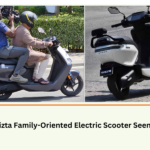
Tata, Mahindra Face EV Setback Despite Heavy Investments
In a bold move to strengthen ties with the United States, the Indian government is pushing ahead with plans to lower import tariffs on electric vehicles (EVs)—even as domestic automakers lobby to delay the move.
According to sources close to the matter, New Delhi has rejected a proposal from local automakers to postpone EV tariff cuts until 2029. Instead, tariff reductions on EVs are expected to be part of the first tranche of concessions under a developing trade deal with the US, signaling a strong political will to open India’s EV market to global players.
A Turning Point in India’s EV Tariff Policy
Currently, import duties on electric cars in India can soar up to 100%, making it nearly impossible for foreign brands like Tesla to enter the market competitively. However, two government officials confirmed that plans are underway to “significantly” reduce these tariffs, despite resistance from major Indian carmakers.
“We have protected the auto industry for far too long. We will have to open it up,” said a senior government official involved in the negotiations.
While exact figures are being withheld due to ongoing discussions with Washington, the intent to lower tariffs across sectors—including electric vehicles—is clear.
Domestic Automakers Push Back
Indian automotive giants like Tata Motors and Mahindra & Mahindra, who have invested heavily in local EV production, are pushing back against the immediate tariff cuts. They argue that their investments were made based on the government’s production-linked incentive (PLI) scheme, which runs until 2029, and any early influx of cheap imports could undermine their competitiveness.
“They are not so rigid on ICE (internal combustion engine) vehicles but have sought careful consideration for EV duties given early investment commitments,” a government official shared.
According to three sources familiar with the talks, local manufacturers worry that this trade agreement with the US could set a precedent—leading to similar tariff reductions in trade deals with the EU and the UK, thus flooding India’s EV market with global competition at a sensitive stage of growth.
Tesla and the Trade Ties with the US
Tesla stands to gain significantly from this shift. The EV giant, backed by US President Donald Trump, has already finalized showrooms in Mumbai and New Delhi, aiming to begin sales in India later this year.
Trump has been vocal about India’s steep tariffs, calling it the “tariff king” and stating that it’s “impossible” for Tesla to sell cars in India under the current duty structure. A reduction in tariffs would give Tesla a clear entry point into the Indian market, without needing to immediately commit to building a factory.
The Bigger Picture: EV Growth in India
Despite strong domestic opposition, the Indian government remains committed to electrifying mobility. With EV sales accounting for just 2.5% of total car sales (4.3 million units) in 2024, New Delhi has a target to increase EV adoption to 30% by 2030.
Lowering import duties could accelerate this transition by making premium EVs more accessible to Indian consumers and stimulating broader market competition.
India EV’s Take: A Balancing Act Ahead
At India EV, we recognize that this decision represents a significant pivot in India’s EV policy direction—balancing the need to attract global technology leaders like Tesla while preserving the interests of India’s burgeoning EV ecosystem.The success of this strategy will depend on how well the government manages this balance—providing foreign access while safeguarding and incentivizing domestic production.











India wants to open the gates for global EV giants like Tesla by cutting import duties—but that’s a tough road for homegrown heroes like Tata and Mahindra, who’ve built their EV journey from scratch. At Nikol EV, we believe India’s EV future should welcome innovation without sidelining local progress. We aim to build a strong, reliable, and efficient charging ecosystem.
Get to know more about us here- http://www.nikolev.in
Contact us- 9325859884